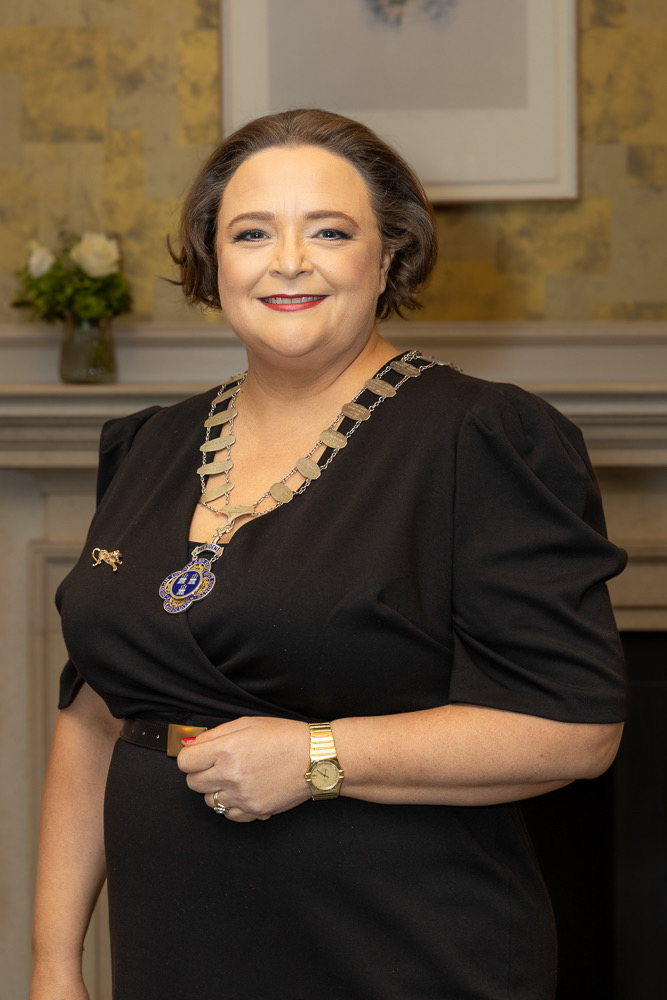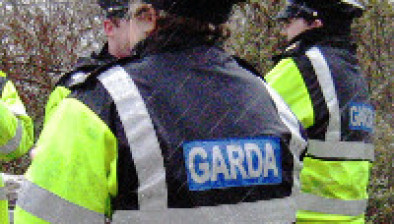Lawyer of the Month: Susan Martin

Susan Martin
Time is something of a scarce commodity for solicitor Susan Martin. Like the principal of any independent law firm, she has been dealing with the inescapable practicalities of life that kick in at this time of year — a list of demands that were somewhat reduced when she recently completed her tenure as president of the Dublin Solicitors Bar Association (DSBA).
Though certainly a challenge to take on in addition to running Martin Solicitors, a litigation practice in Coolock, on Dublin’s northside, her presidency was also, she reports with characteristic enthusiasm, “a fantastic experience”.
Among the issues that particularly absorbed her attention were the significant changes to the way in which enduring powers of attorney (EPA) are now put in place and monitored, which came into effect in April.
“Following legislative amendments in December of 2022, the regime was changed in terms of the EPA, maybe more than people had realised, as it must now be registered at the time of creation and it moved to a fully online system — which can be challenging for some clients who are vulnerable, elderly, or perhaps just not computer literate,” she explains.
“There are additional details, such as now having to notify all your adult children of the creation of an EPA, notwithstanding what kind of relationship you may have with them. And as we all know, families can be complicated so this aspect raised some ethical questions.
“But that was something that the DSBA, as soon as our colleagues had started learning of the difficulties quickly swung into action about, met with the Decision Support Service and we were able get a clarification, which I could then bring back to our members.”
Another area the DSBA worked and is working on is around criminal legal aid fees. “These have been quite depressed for more than 20 years and we wanted to address that,” says Ms Martin.
“This isn’t just from the solicitors’ point of view — because no one is doing that to get rich working in this area — but to ensure that there are enough practitioners available to people who find themselves in difficulty.
“We’ve seen the consequences of this in the UK, where there are now legal ‘deserts’ with no legal aid practitioners in certain areas and someone might have to travel 200 miles to find a solicitor, so we made extensive submissions in relation to the legal aid issue.”
Ms Martin is also happy to have maintained a very close relationship with the Belfast Solicitors Association during the past year. “We enjoy a great degree of solidarity and friendship with our colleagues there and one of the things I enjoyed about my time in office was keeping in touch with Sarah Wilson [chair of the BSA] and having that kind of collegiality.
“This is important, as is our relationship with the other bar associations around the country. As the ‘big sister’ in terms of our numbers, a lot of them want to plug into our input and we’re happy to help with advice and practical suggestions.”
The DSBA was, she adds, similarly happy to work closely with the Law Society of Ireland, of which she has been recently re-elected to the Council. “I don’t know whether to thank people or blame them for that,” she laughs. “But I’m signed up for another two years anyway. And I’m delighted to be able to do that.”
She has also been a very active member of the Law Society’s guidance and ethics committee for more than 10 years, “dealing with everyday ethical issues that my colleagues regularly apply their minds to and give a lot of thought, which I find very rewarding”.
Ms Martin is, she admits, fascinated by reconciling regulation and legislation with its outworking in real-life. “You can regulate morning, noon and night and there are certain aspects of regulation that are entirely necessary to deter people from undertaking incorrect, criminal, or unethical activity. But what interests me is how we translate that into everyday practice? How does that make things safer for my client?”
These are among the questions that led her to co-author the fourth edition of the Solicitor’s Guide to Professional Conduct, which she says she herself frequently consults. She has also written two books with barrister Karl Dowling, one dealing with procedure in the Circuit Court and one in probate procedure.
Through the Law Society, she’s also undertaking a doctoral thesis on the regulation of solicitors. “I’m really interested in the culture that surrounds regulation, and involves solicitors and professionals and how they practice,” she says.
She admits this range of professional commitments ensures a very active life, with little time for traditional lawyerly recreations such as golf (“I wish I did play golf,” she says wistfully) but does engage her on a regular basis as what she describes as being “a weekend warrior” — 30 years’ service in the Army Reserve which began in her home city of Cork and now occupies her as Commandant in 2 Brigade Military Police Reserve in Dublin.
That, she says unsurprisingly, has kept her busy after bringing up four sons, the second youngest who was diagnosed with a moderate intellectual disability when he was three and led to and introduced special needs assistance dog Ruby to the family, something which she says has “helped him do many things he’d otherwise not have been able to do himself and helped him lead a much richer and really full life”. Ms Martin has also served as a trustee of Autism Assistance Dogs Ireland.
In the immediate future, there’s that PhD to complete, plus doubtless other books to write, regulatory reform to contemplate and the daily demands of running of a successful litigation practice. One would perhaps be unwise to completely rule out a few distinctly competitive rounds of golf at some stage.











